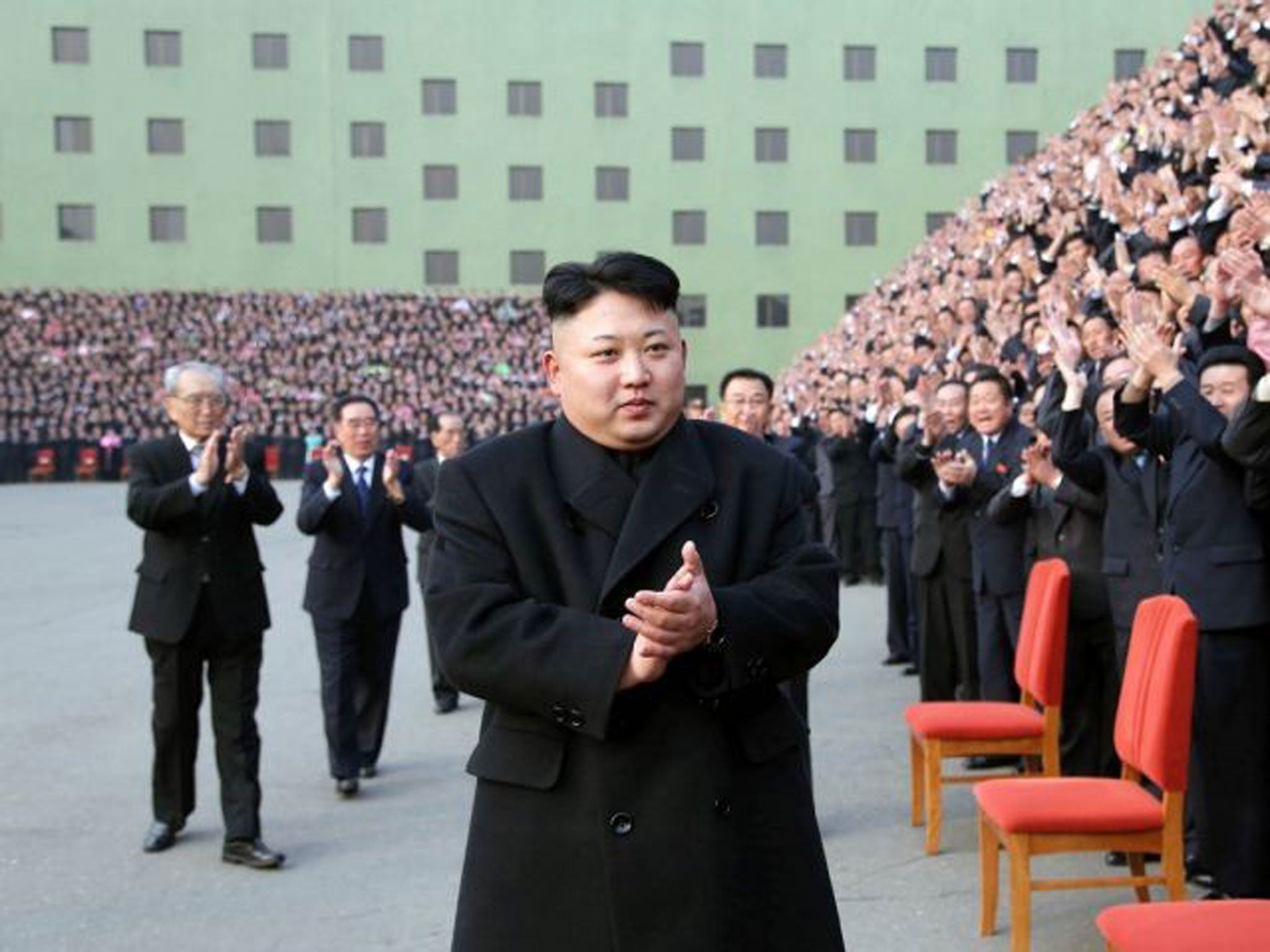North Korea election: Kim Jong-un faces the vote - but of course there's only one name on the ballot box
The electoral process employed by the totalitarian North Korean regime is due to get underway this weekend

Your support helps us to tell the story
From reproductive rights to climate change to Big Tech, The Independent is on the ground when the story is developing. Whether it's investigating the financials of Elon Musk's pro-Trump PAC or producing our latest documentary, 'The A Word', which shines a light on the American women fighting for reproductive rights, we know how important it is to parse out the facts from the messaging.
At such a critical moment in US history, we need reporters on the ground. Your donation allows us to keep sending journalists to speak to both sides of the story.
The Independent is trusted by Americans across the entire political spectrum. And unlike many other quality news outlets, we choose not to lock Americans out of our reporting and analysis with paywalls. We believe quality journalism should be available to everyone, paid for by those who can afford it.
Your support makes all the difference.To call them elections is to significantly overstate the case.
However it is described, the electoral process employed by the totalitarian North Korean regime is due to get underway this weekend with Kim Jong-un, the third in his family to rule the secretive state, running unopposed in a legendary mountain district.
State news agency KCNA said on Thursday that election preparations were "gaining momentum", with voters confirming their names on electoral lists for the ballot held every five years.
"Agitation activities are going on to encourage citizens to take active part in the election with high political enthusiasm and labour feats, amid the playing of 'Song of the Election'," KCNA reported.
The whole process is more one of spectacle and control than of democracy and free expression.
In the constituency of Mount Paektu, an inactive volcano on the Chinese border where Kim Jong-un's grandfather was born (according to legend), Kim's name will be the only one on the ballot.
Across the country the process will be broadly the same. In most districts the only name on the ballot will be a candidate chosen by the Workers' Party although a few independents, such as pro-Pyongyang Koreans from Japan, are allowed to take part.
Elections to key positions in the North's Supreme People's Assembly are largely symbolic with the power instead lying with the ruling Korean Workers' Party and power within that being held by its truculent leader and a handful of close advisers.
Appointments to key positions will be watched closely by North Korea observers looking to see any potential subtle change in the direction of leadership.
Kim, presumed to be 31-years-old, is standing for the 687-seat assembly for the first time since taking office in 2012 after the death of his father, Kim Jong-il.
"I feel very grateful for your expression of deep trust in me and extend warm thanks from the bottom of my heart," Kim said, thanking voters and announcing his candidacy in an open letter released by the KCNA last month.
A vice-minister of construction has held the Paektusan seat since 2009 and it was unclear if he was standing elsewhere.
Voting is compulsory in the country, and though it is of course possible to vote no it would be very dangerous to do so. Turnout figures are generally just short of 100 per cent. Although almost comedic as a facade of democracy, the exercise is no laughing matter.
Analysts say the entire process also functions as a census and a mechanism to check on the whereabouts of residents and possible defections or attempts to illegally cross internal borders.
"Travel restrictions and surveillance are ramped up before the election," Sokeel Park, of Liberty in North Korea, an NGO that works with North Korean defectors, said.
"Various heads of local work and residential units make sure everything on their patch is in order, to avoid criticism and trouble if the election does reveal missing people."
Last month, UN investigators said North Korea's extermination of political prisoners over the past five decades might amount to genocide, and compared them to Nazi-era atrocities.
The judge responsible for the investigation, Michael Kirby, said the UN Commission of Inquiry's "repeated requests" to visit North Korea and its prison facilities were rejected by Pyongyang.
Kirby and his team issued their 372-page report on 17 February after a year-long investigation marked by unprecedented public testimony by defectors at hearings held in South Korea, Japan, Britain and the US.
The investigators told Kim in a letter that they were advising the UN to refer North Korea to the International Criminal Court (ICC), to make sure any culprits "including possibly yourself" were held accountable.
The North Korean state-run KCNA news agency hit back at the report, citing a pro-North Korean politician from Brazil who said the judge had manipulated evidence at the behest of North Korea's old enemy, America.
"[Kirby's] mission is to manipulate 'evidence' on the orders of Washington, lie about (North) Korea and oppose the republic under an international alliance that is controlled by the US," KCNA said.
Additional reporting by Reuters
Subscribe to Independent Premium to bookmark this article
Want to bookmark your favourite articles and stories to read or reference later? Start your Independent Premium subscription today.
Join our commenting forum
Join thought-provoking conversations, follow other Independent readers and see their replies
Comments